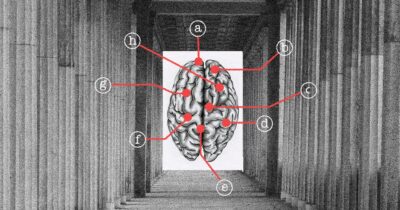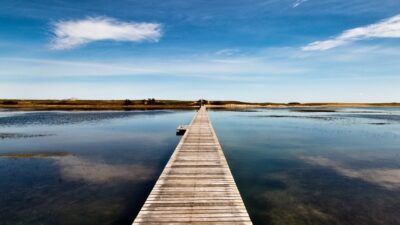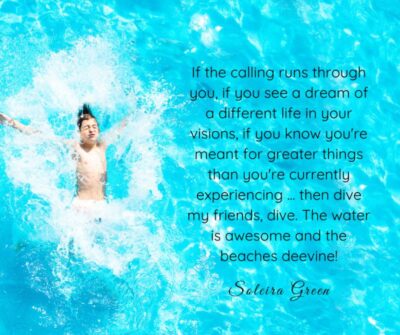I have conflicting thoughts about letting go of the past and repressing negative feelings. Does documenting our bad experiences in personal writing, a diary, or poetry actually help us in the long run?
~ Dee, US
Immanuel Kant had a manservant named Martin Lampe, whom he cared deeply about. Kant was a strict and austere man, but he committed to his relationships with the resolve of a man whose entire philosophy was based on doing the right thing. For forty years, the two wedded their lives together. The peculiar Kant and his dutiful servant. But then, one day, things turned sour. History is unclear on the details—it might have been drunkenness or theft—but Kant had to let Lampe go. Kant was devastated. Living hand in glove with another human for 40 years is a kind of love, and this was a kind of divorce. And so he pinned a note above his desk saying, “Forget Lampe.” Every day he would not forget to forget Lampe.
 Of course, this is ridiculous. You cannot easily force yourself to forget something or someone. In fact, the more you try, the harder it becomes. But you can stop yourself from reliving those memories. This is what lies at the heart of this week’s question. When something bad happens to you — something traumatic, even — how far should we try to move on and how far should we try to unpack our past? I do not have a psychology degree, and I am not a psychotherapist, so I will approach this from a philosophical point of view and ask: How important is our past to our future? Should Kant try to forget Lampe or carry his memory as part of him? Should Dee let go of the past or dig it up and face it down?
Of course, this is ridiculous. You cannot easily force yourself to forget something or someone. In fact, the more you try, the harder it becomes. But you can stop yourself from reliving those memories. This is what lies at the heart of this week’s question. When something bad happens to you — something traumatic, even — how far should we try to move on and how far should we try to unpack our past? I do not have a psychology degree, and I am not a psychotherapist, so I will approach this from a philosophical point of view and ask: How important is our past to our future? Should Kant try to forget Lampe or carry his memory as part of him? Should Dee let go of the past or dig it up and face it down?
To answer that question, we will look at two radically different answers. The first comes from Friedrich Nietzsche, who says that, sometimes, forgetting is an act of self-creation. The second, Edmund Burke, offers a curious, and possibly controversial, opinion: Sometimes reliving our past is a beautiful experience and worthy of that alone.
Nietzsche: Live like the beasts
Philosophers have a curious relationship with animals. Some, like John Stuart Mill, see them as a source of pity. When he wrote, “It is better to be a human being dissatisfied than a pig satisfied,” he was arguing that human intelligence and higher faculties are what allow us to be supremely happy. But, roughly around the same time as Mill, Nietzsche was arguing the complete opposite. He wrote:
Observe the herd, which is grazing beside you. It does not know what yesterday or today are. It springs around, eats, rests, digests, jumps up again, and so from morning to night and from day to day, with its likes and dislikes closely tied to the peg of the moment, and thus neither melancholy nor weary. To witness this is hard for man because he boasts to himself that his human race is better than the beast and yet looks with jealousy at its happiness.
There is an innate in-the-momentness to being a beast. They are unworried by the past. They do not care about their past mistakes and wrong turns; they just keep moving forward. The beast is not bowed low by the “invisible and dark burden” of their memory, but rather they live what Nietzsche calls “unhistorically.” Of course, no one can meaningfully live without remembering things to at least some degree. Cows might enjoy chomping on grass all day long, but I am not a cow. I cannot change that. Nietzsche’s answer is a kind of mental realignment and a useful self-help strategy: View the past as a resource to be mined.
You have a whole library of memories. Some are traumatic, and some are happy. Some are pointless, and some are deeply important. For Nietzsche, we should “appropriate or forcibly take from the past” what we can. We use the past and bring it into ourselves like an elixir. But if that past is poison and weakens us, then forget it. Move on.
So, Dee, Nietzsche would ask this: Does your diarizing about your hard past make you better, stronger, and fuller? If yes, go on and do it. Breathe it in and “transform it into blood.” But if it leaves you broken, scared, or worse, forget it.
Burke: The beauty of trauma

Writing a century or so before Nietzsche, the Anglo-Irish philosopher Edmund Burke offers an interesting take on this: What if there’s an aesthetic benefit from remembering our trauma? For Burke, the “sublime” is an aesthetic experience that is “capable of producing delight — not pleasure, but a sort of delightful horror, a sort of tranquility tinged with terror — which, as it belongs to self-preservation, is one of the strongest of all passions. Its object is the sublime.” The sublime is when we stand at the foot of a huge, crashing waterfall or in the middle of a flashing thunderstorm. It’s the booming chant of a stadium in song, and you’re staring at the enormity of the night’s sky. It’s appreciating the terrible from a safe position.
Traumatic experiences and a broken past are terrible. They are life-wrenching and often life-breaking. But they are in the past. They are no longer, in and of themselves, a threat to us. So, when we dig up and stare at these experiences, we encounter a moment of the sublime. We are pulled to the terrible beauty of the darkness inside of us. We pick at scabs and relive past trauma because we enjoy the aesthetic experience of the matter. The masochistic pleasure we get from digging up our past is not new wisdom — it’s found in ancient philosophy and in Freud — but Burke’s spin is interesting. It treats our past as a kind of artifact to appraise — an item in a museum to enjoy, safely behind the rope.
Dig it up or bury it deep?
As is almost always the case in these kinds of dilemmas, so much depends on what we do not know. We do not know exactly what “bad experiences” Dee is talking about, and we do not know what’s going on in her mind when she relives them.
Ultimately, I think Nietzsche’s advice is sound. It amounts to the saying, “If you’re better off forgetting, do so” and, “If it makes you stronger, remember.” This is true for everyday acts like keeping a diary and talking with friends. It also applies to therapy. Anecdotally, it therapy seems to work. Almost everyone I know who is in or has come through therapy says the experience is a good and healthy one. But the Nietzsche test ought to apply here as well. After six months, a year, or whatever, it’s useful to ask, “Am I a better person after talking about all this?” If not, then perhaps it’s time to try something else. Perhaps it’s time to forget instead.
Original article here










 We should probably pin down what we mean by loneliness, as opposed to solitude, aloneness, social isolation, disconnectedness etc. For Henry Rollins, the former Black Flag frontman turned writer, it’s something that “adds beauty to life. It puts a special burn on sunsets and makes night air smell better.” I’m going to file that under Poetic Nonsense. The Campaign to End Loneliness (CEL), more usefully, defines it as “a subjective, unwelcome feeling of lack or loss of companionship. It happens when there is a mismatch between the quantity and quality of the social relationships that we have, and those that we want.”
We should probably pin down what we mean by loneliness, as opposed to solitude, aloneness, social isolation, disconnectedness etc. For Henry Rollins, the former Black Flag frontman turned writer, it’s something that “adds beauty to life. It puts a special burn on sunsets and makes night air smell better.” I’m going to file that under Poetic Nonsense. The Campaign to End Loneliness (CEL), more usefully, defines it as “a subjective, unwelcome feeling of lack or loss of companionship. It happens when there is a mismatch between the quantity and quality of the social relationships that we have, and those that we want.”
 Not only do animals provide us with unconditional love and support; they also help to give structure to our days and even encourage us to get out and connect with others. Interaction with pets is also shown to help reduce stress levels.
Not only do animals provide us with unconditional love and support; they also help to give structure to our days and even encourage us to get out and connect with others. Interaction with pets is also shown to help reduce stress levels.